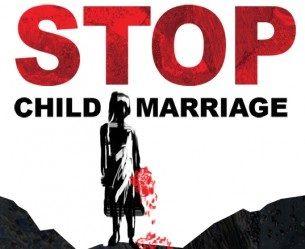May 18, 2016: The Minister of State in the Office of the Prime Minister (Gender and Child Affairs) has noted with concern the statements that are being attributed to the President of the Inter-Religious Organisation and the Secretary General of the Sanatan Dharma Maha Sabha, on child marriage as recently reported by the media.
Both parties have reportedly stated that the State should not interfere with the law as it relates to the minimum age for marriage.
As a nation, we recognise that our children and women are two of the most vulnerable groups in society, who are in need of our care, protection and support. The Government, is committed to legislative measures and other initiatives aimed at ensuring that our children are protected and their rights upheld. In this context, the issue of child marriage in Trinidad and Tobago is a topic of national concern.
The age at which males and females can enter into marriage in Trinidad and Tobago are regulated by our four marriage statutes. All four statutes permit marriage at ages which are in conflict with the age of consent to sexual activity as reflected in the Children Act, 2012.
The permitted ages under the various statutes are as follows:
1. Under the Hindu Marriage Act, Chapter 45:03, a girl may marry at age 14 and a boy at 18;
2. Under the Muslim Marriage and Divorce Act, Chapter 45:02, a girl may marry at age 12 and a boy at 16;
3. Under the Orisa Marriage Act, Chapter.45:04, a girl may marry at age 16 and a boy at age 18; and
4. The Marriage Act, Chapter. 45:01, sets out a process and procedure of consent for marriages of minors, which governs Christians and Civil Marriages.
The child protection goals embodied in the Children Act, 2012, and more particularly the provisions that children under 18 cannot consent to penetrative sexual conduct, is a reflection of our society’s collective will to safeguard and protect our children. The gap between the age for marriage (currently 12, 14 and 16) and the age of consent to penetrative sexual conduct (18 years) has increased since the proclamation of the Children Act, 2012 in May, 2015 and must be harmonized.
Early marriage can expose a child, inter alia, to:
1. Decreased opportunity for education;
2. Serious health risk such as premature pregnancy and sexual transmitted infections since the child cannot abstain from sex or insist on condom use;
3. High risk due to early pregnancy such as death during delivery, endangering the health of young mother and their babies; and
4. Increased likelihood of being subjected to gender-based violence.
Moreover, early childhood marriage terminates many of the elements associated with a healthy and enjoyable childhood and creates a cycle of poverty by curtailing the educational opportunities of the children involved.
It is the Government’s view that children are entitled to the fullest benefits of childhood and to the enjoyment of their rights as children and the Government is committed to the protection and fulfilment of these rights. In this regard, there is a critical need for the age of marriage to be aligned to the age of consent for sexual conduct.






